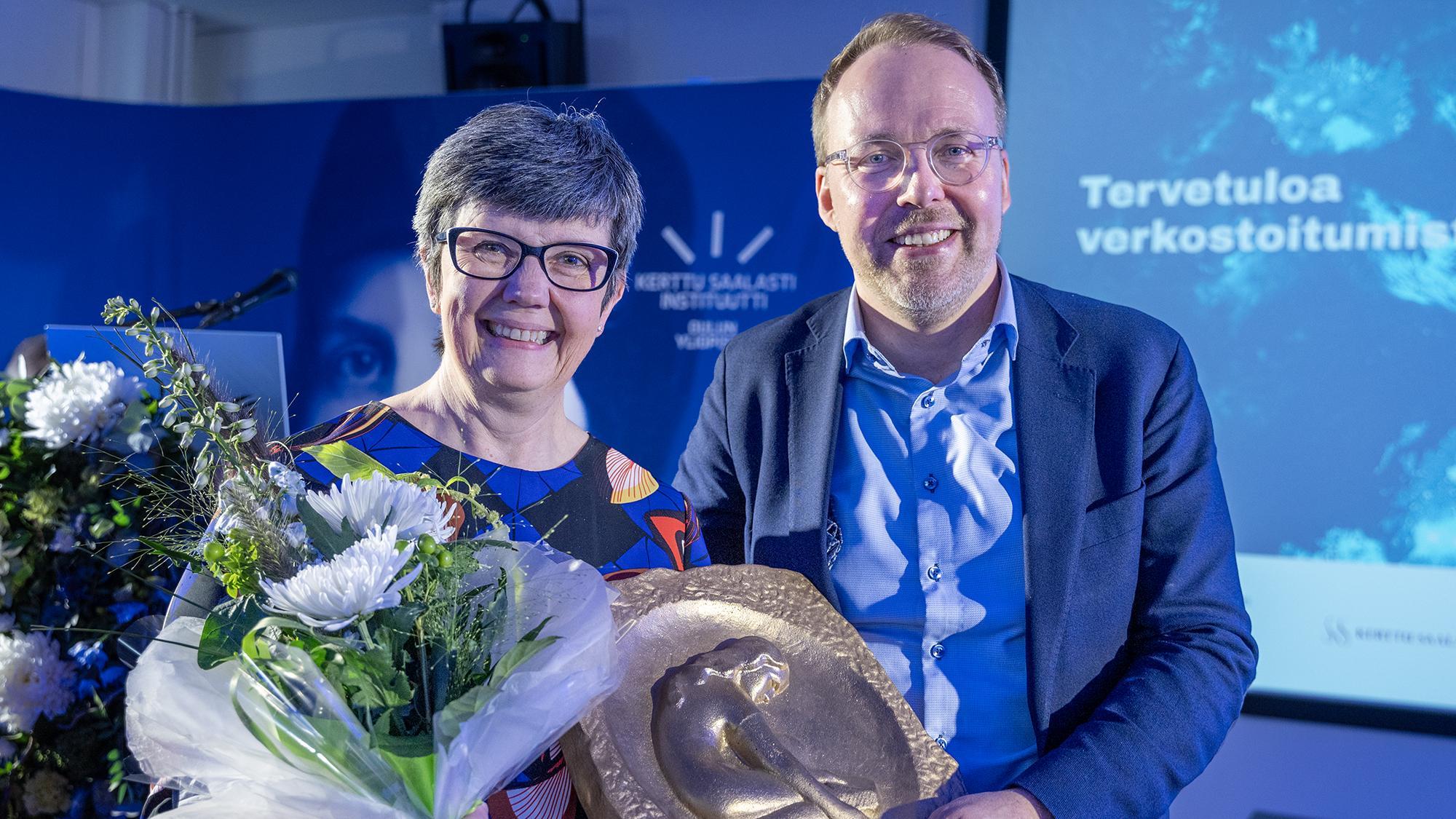Kerttu Saalasti Seminar Highlights Surprising Growth Potential of Rural Areas – Irish Expert Honored

The seminar theme was “Our Northern Handprint Is Global – Sustainability through Regional Excellence.” Presentations explored the added value of the green transition for rural areas and how increasingly international RDI (research, development and innovation) cooperation fosters regional growth. Discussions also examined the resources needed to drive the green transition and business expansion, and how to maintain competitiveness amid declining populations.
According to Minister Talvitie, the green transition is not only about building a more ecological or environmentally friendly future; it is also an economic and social opportunity. It is visible in investments in renewable energy and the emergence of a new, energy-intensive industrial sector built on those investments. Collaboration between businesses and RDI actors is key to achieving a sustainable transition.
“Internationalizing research and development and the cooperation it enables are central drivers of regional competitiveness and sustainable growth. This requires us to recognize our strengths, ensure an adequate supply of skilled professionals, and have the courage to invest. Under the leadership of Prime Minister Orpo’s government, we support this work through a historic public investment of more than one billion euros in research and development,” Talvitie said.
Strong Growth Areas in the Finnish Countryside
According to Ossi Kotavaara, Research Director of the Regional Excellence research group, some rural regions in Finland have developed strong clusters of growing micro and small-to-medium-sized enterprises. These areas also host young, fast-growing “gazelle companies”. In the broader context of economic and demographic structural change, identifying these phenomena is essential for understanding and strengthening the competitiveness of our regions.
Jenni Airaksinen, CEO of the Foundation for Municipal Development, emphasized that every region has its own strengths and potential. She noted that attention should focus less on population decline and more on recognizing and encouraging those who are active locally and on uncovering each area’s unique appeal.
Harri Jaskari, Head of Economic Policy at Suomen Yrittäjät, stated that the SME sector—and micro-enterprises in particular—must be included in exports to secure sustainable growth. In many countries, micro-enterprises are regarded as dynamic reformers of the national economy.
Elisa Sipponen, Finance Director responsible for micro-enterprise financing at Finnvera, agreed. According to her, especially in smaller localities, the importance of micro-enterprises is highlighted, as they renew the economy and often generate the most radical innovations alongside large companies.
Kerttu Saalasti Award Recognizes Strong Research Collaboration with Ireland
A highlight of the seminar was the presentation of the €5,000 Kerttu Saalasti Award. The award is given annually for significant achievements in advancing micro-entrepreneurship, entrepreneurial culture, or societal impact. This year’s recipient, Professor Felicity Kelliher of South East Technological University, focuses her research on developing the skills of employees in micro-enterprises located in rural areas.
Professor Matti Muhos, representative of the Kerttu Saalasti Foundation, praised Kelliher for her extensive academic visibility as a micro-entrepreneurship scholar.
“Professor Felicity Kelliher is highly cited in her field and has inspired researchers globally to engage in micro-entrepreneurship studies. Her most referenced articles address, among other topics, resource-based perspectives on micro-enterprise management practices, the role of trust in micro-enterprises’ commitment to networks, managerial innovation capability, and collaboration strategies in micro-enterprises”, Muhos noted.
According to Muhos, honoring an international expert is a welcome step toward strengthening global networks in micro-entrepreneurship research. According to Kelliher, research links between Finnish and Irish enterprise and entrepreneurship researchers are long-standing.
“As an applied researcher, it has been my immense pleasure to work with colleagues in Finland in developing innovative research and development programmes, co-created with micro enterprise owners, and am hugely appreciative of this award”, Kelliher says.
According to Kelliher, failure rates of micro-enterprises remain unnecessarily high in both Finland and Ireland. She believes that a holistic, co-created development infrastructure, underpinned by research, best suits this community of entrepreneurs. “I recommend working closely with students, colleagues, micro entrepreneurs and government and community stakeholders in developing in- action research projects that have tangible practical and theoretical contributions in pursuit of these goals. For example, research-informed living labs and action research interventions can help enhance sustainable development in these enterprises”, she suggests.
Watch the seminar (in Finnish) on the YouTube channel of University of Oulu.